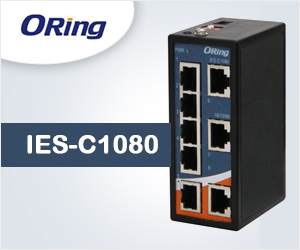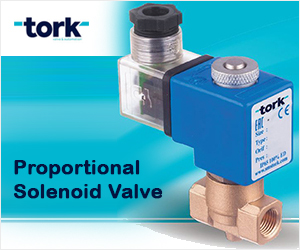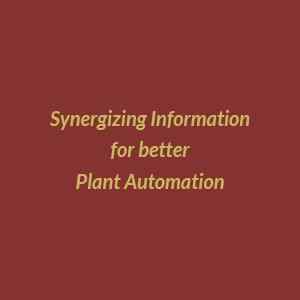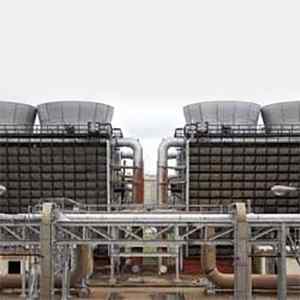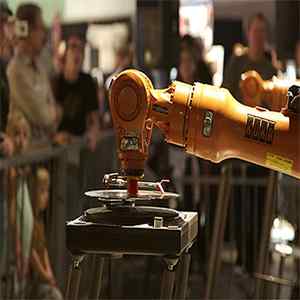Integrating ERP Systems with Industrial Automation for Seamless Operations
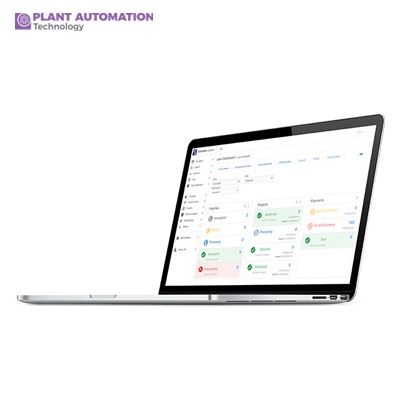
In today's fast-paced industrial landscape, the integration of ERP systems with industrial automation is paramount for achieving seamless operations. This convergence leverages enterprise resource planning software applications with advanced technologies like machine learning, artificial intelligence, and the Internet of Things (IoT), resulting in significant improvements in efficiency, decision making, and overall operational performance.
The Role of ERP Systems in Industrial Automation
Enterprise resource planning (ERP) systems are comprehensive software applications designed to manage and integrate core business processes. These systems provide a centralized framework for data collection, storage, and management, enabling real-time information flow across departments. When integrated with industrial automation, ERP systems facilitate streamlined workflows, reduced manual intervention, and enhanced process coordination.
Enhancing Decision Making
The integration of ERP systems with industrial automation significantly enhances decision making. Real-time data collected from automated processes is fed into the ERP system, providing managers with accurate and up-to-date information. This data-driven approach enables informed decisions that optimize production schedules, inventory management, and resource allocation. Furthermore, the inclusion of data visualization tools within ERP systems helps in presenting complex data in an easily understandable format, aiding swift and effective decision making.
Leveraging Artificial Intelligence and Machine Learning
The incorporation of artificial intelligence (AI) and machine learning (ML) into ERP systems and industrial automation opens new avenues for operational excellence. AI algorithms can analyze vast amounts of data to identify patterns, predict outcomes, and provide actionable insights. Machine learning models, on the other hand, continuously improve by learning from historical data, enhancing the accuracy of predictions and recommendations.
Predictive Maintenance
One of the significant benefits of integrating ERP systems with industrial automation is the ability to implement predictive maintenance. By utilizing machine learning algorithms, ERP systems can analyze data from IoT-enabled sensors to predict equipment failures before they occur. This proactive approach minimizes downtime, reduces maintenance costs, and extends the lifespan of machinery. Predictive maintenance ensures that maintenance activities are performed only when necessary, optimizing resource utilization and maintaining operational continuity.
Ensuring Cybersecurity
As industries become more connected through ERP systems and industrial automation, ensuring robust cybersecurity measures is critical. The integration of these systems increases the attack surface, making them susceptible to cyber threats. Cybersecurity protocols must be embedded within the ERP and automation frameworks to protect sensitive data and maintain the integrity of operations. This involves implementing firewalls, encryption, access controls, and continuous monitoring to detect and mitigate potential security breaches.
The Role of IoT in Industrial Automation
The Internet of Things (IoT) plays a pivotal role in the integration of ERP systems with industrial automation. IoT devices and sensors collect real-time data from various operational aspects, feeding this information into the ERP system. This seamless data exchange enhances visibility into production processes, inventory levels, and equipment status. The integration of IoT with ERP systems enables businesses to achieve a connected and responsive manufacturing environment.
Data Warehousing and Data Visualization
Effective data management is crucial for the successful integration of ERP systems with industrial automation. Data warehousing solutions provide a centralized repository for storing large volumes of data generated from automated processes. This data can be easily accessed and analyzed, supporting informed decision making and strategic planning.
Data visualization tools within ERP systems transform raw data into graphical representations such as charts, graphs, and dashboards. These visual tools simplify complex data sets, making it easier for stakeholders to comprehend trends, identify issues, and make data-driven decisions. Enhanced data visualization capabilities contribute to improved operational efficiency and transparency.
Financial Reporting and Process Automation
Integrating ERP systems with industrial automation streamlines financial reporting processes. Automated data collection and processing eliminate manual errors and ensure accurate financial records. ERP systems can generate real-time financial reports that provide insights into cost structures, profitability, and financial performance. This level of accuracy and timeliness in financial reporting is essential for strategic planning and regulatory compliance.
Process automation is another key advantage of integrating ERP systems with industrial automation. Automated workflows reduce manual intervention, speeding up production processes and minimizing errors. For instance, automated inventory management within an ERP system ensures that stock levels are monitored in real-time, triggering reorders when inventory falls below predefined thresholds. This automation enhances operational efficiency, reduces lead times, and improves customer satisfaction.
Driving Competitive Advantage
Integrating ERP systems with industrial automation provides a significant competitive advantage by enabling companies to respond more swiftly to market changes and customer demands. The agility and flexibility offered by this integration allow businesses to adjust their production schedules and inventory levels in real-time, ensuring they can meet customer requirements without delays. Machine learning and artificial intelligence within ERP systems further enhance this agility by predicting market trends and customer preferences, allowing companies to proactively adjust their strategies.
Improved Customer Satisfaction
Customer satisfaction is paramount in today's competitive market. By integrating ERP systems with industrial automation, companies can ensure timely delivery of high-quality products. Predictive maintenance and real-time monitoring reduce the risk of unexpected equipment failures and production delays, ensuring that products are manufactured and delivered on schedule. Additionally, ERP systems facilitate accurate financial reporting and order tracking, providing customers with transparency and trust in their transactions.
Advanced Financial Reporting and Compliance
Accurate and timely financial reporting is critical for compliance and strategic planning. The integration of ERP systems with industrial automation enables automated data collection and processing, reducing the likelihood of errors and ensuring compliance with regulatory standards. Real-time access to financial data allows businesses to monitor their financial health continuously, making informed decisions to optimize costs and improve profitability. The advanced data warehousing capabilities of ERP systems support detailed financial analysis and reporting, providing insights that drive business growth.
Enhancing Process Automation
Process automation is a key benefit of integrating ERP systems with industrial automation. Automated workflows within the ERP system streamline routine tasks such as inventory management, order processing, and production scheduling. This automation reduces manual intervention, minimizing the risk of human error and speeding up processes. For example, automated data visualization tools can generate real-time reports and dashboards, providing instant insights into operational performance and facilitating quick decision-making.
Strategic Use of Data Warehousing and IoT
The strategic use of data warehousing and the Internet of Things (IoT) is crucial for the successful integration of ERP systems with industrial automation. Data warehousing solutions centralize data from various sources, providing a single source of truth for analysis and reporting. This centralized data repository supports advanced analytics and machine learning models, enabling predictive insights and strategic decision-making. The integration of IoT devices with ERP systems allows for real-time data collection from sensors and machinery, enhancing visibility and control over production processes.
Future Trends and Innovations
The future of integrating ERP systems with industrial automation is promising, with continuous advancements in artificial intelligence, machine learning, and cybersecurity. These technologies will drive further innovations in predictive maintenance, process optimization, and data visualization. ERP systems will increasingly leverage machine learning algorithms to refine predictive models and improve operational efficiency. Enhanced cybersecurity measures will protect against evolving threats, ensuring the integrity and security of interconnected systems.
Conclusion:
The integration of ERP systems with industrial automation is a transformative strategy for achieving seamless operations and gaining a competitive edge. By leveraging enterprise resource planning software applications, machine learning, artificial intelligence, IoT, and data warehousing, businesses can enhance decision making, improve cybersecurity, implement predictive maintenance, and streamline process automation. This integration not only boosts operational efficiency but also drives innovation, scalability, and customer satisfaction. As technology continues to evolve, the synergy between ERP systems and industrial automation will unlock new opportunities for growth and success in the industrial sector.


